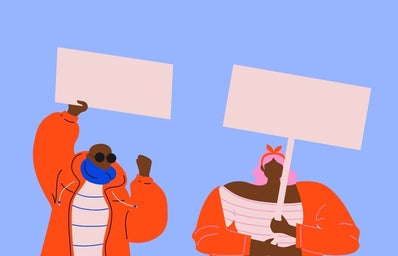As we leave Black History Month and enter Women’s History Month, corporations must stop capitalizing off of oppressed individuals. This can be seen in almost every instance as corporations release tons of rainbow apparel and logos in June, they release advertisements and merchandise with Pan-African themes during February. It is completely performative in every single one of these examples as these groups are celebrated for a month by these businesses and the next, it is like it never existed.
As a white woman, I must note that I can only comment on Women’s History Month being used for profit by corporations like Hershey, who just revealed that they are releasing a new candy bar for the month. Women are not asking for things like this, what we are asking for is to be heard and respected by their male counterparts. We are asking for equity.
However, I would like to denote there is a complete difference between corporations and individuals from these groups being celebrated during this month creating items to sell. If anything, I support buying from these small businesses so that way you can directly support them rather than a conglomerate, multi-million dollar company.
While I realize that women, specifically white women, have a lot of privileges in our country, it is still evident that women as a whole are not treated as equals to their male counterparts. Black women have been discriminated against for “being unprofessional,” such as wearing protective hairstyles and even just wearing their natural hair and brutalized by the police. Indigenous women are being murdered and go missing at exponential rates. Latinx women are exoticized unfairly in our media and make up a large percentage of Covid-19 job losses. Dozens of trans-women of color are killed just for existing. It is more than all of that encompassing women of different races, ethnicities, religions, sexual identity and gender identity, but those are just examples.
In our government, we have seen significant gender disparity. For example, 73% of U.S. Representatives are men. On top of that, white men are only 30% of the population and hold 62% of elected offices. In addition, 19 states have never had a female governor.
Women have accounted for 51.1% of the United States population since 2013. White women make up 60% of that population, Hispanic women account for 18%, Black women constitute 12.9%, Asian women make up 5%, Indigenous women account for 0.7% and Pacific Islander women comprise 0.2%. In addition, 5.1% of women in the United States identify as LGBT. When you look at these demographics, do you not think that groups from each race or ethnicity of women should be equally represented?
This is not just in governmental institutions as well, most businesses are run by white men. And you may be thinking, “Well, these businesses do donate their profits sometimes.” Businesses only give around 1% of their pretax profits to charity, but individuals tend to double that. In addition, tons of companies donate to charities or individuals in politics that hinder women’s rights such as Walmart, Pfizer, Boeing and more.
Women go through so much pain and our pain needs to stop being something for corporations to profit off of. Many states still have a pink tax. Transgender and queer women are berated constantly. One in three women, globally, experience violence and one in six American women have experienced sexual assault. Black and Brown women, like Lauren Smith Fields, Elizabeth Martinez Cigarroa, Keeva Scatter and many more will never get justice for what happened to them. This pain is what needs to be remembered this Women’s History month rather than corporation merchandise that has a performative logo on it.


